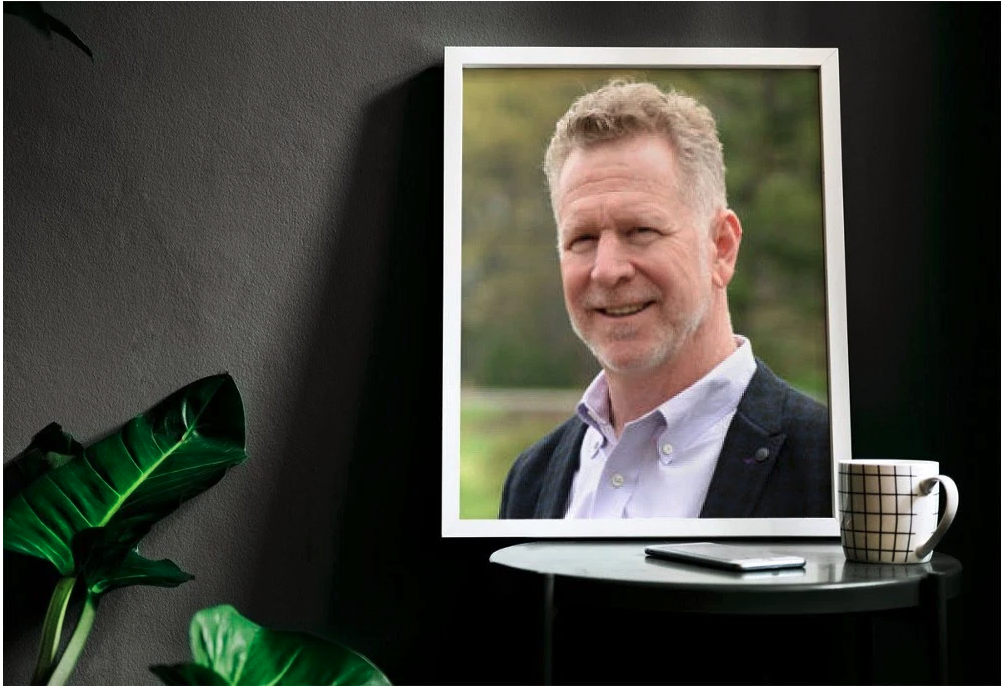Alan Zucker of ‘Project Management Essentials’: “Embrace experimentation and failure” on Thrive Global, February 28, 2021.
Embrace experimentation and failure…Look at Edison, 1999 failed experiments until he got it right. Move away from the notion that we can plan to get it right the first time through. It does not work that way. We need to create an environment where failure is a learning opportunity.
As part of my series about “How Businesses Pivot and Stay Relevant In The Face of Disruptive Technologies,” I had the pleasure of interviewing Alan Zucker.
He has over 25-years of experience leading projects and project management organizations in Fortune 100 companies. He led the agile transformation of a project office with over 170 project managers and has delivered large, strategic initiatives.
In 2016, Alan founded Project Management Essentials to share his passion for and experience with project management. Project Management Essentials provides advisory consulting and training to clients across the United States. Clients include Freddie Mac, Fannie Mae, the American Petroleum Institute, and several PMI Chapters.
Alan is a keynote speaker and thought leader. He is regularly featured in the industry press and as a podcast guest. He publishes monthly articles on project management, agile, and leadership. He an adjunct faculty member at George Mason University and is a senior instructor with several national professional development organizations.
Alan has a master’s degree in economics from the University of Maryland and a master’s certificate in IT Project Management from the George Washington University. He is a Project Management Professional (PMP) and Certified Agile Professional (PMI-ACP) through the Project Management Institute. He also holds multiple Agile certifications from the Disciplined Agile Consortium, Scrum Alliance, and Scaled Agile.
Thank you so much for joining us in this interview series. Our readers would love to “get to know you” a bit better. Can you tell us a bit about your ‘backstory’ and how you got started?
I have my master’s degree in economics, and my first big job out of graduate school was managing the U.S. Treasury security auctions. In the wake of the Solomon Brothers scandal, I was asked to work with the Federal Reserve Bank of New York to automate the auctions. At that point, I decided to change my career and focus on project management.
After Treasury, I worked in telecommunications for a disruptive, upstart, long-distance provider. We were fierce, competitive, entrepreneurial, and agile. I was living business agility a decade before the concepts were described and codified.
After that, I worked for a Fortune 100 financial services company. It was a very different environment. But at a certain point, it realized it needed to change how it worked and operated. So I was asked to play a leadership role in its transformation.
I have been an agile and project management instructor, coach, and consultant for the past few years. It has been gratifying to share my experience and passion with others.
Can you share a story about the funniest mistake you made when you were first starting? Can you tell us what lessons or ‘takeaways’ you learned from that?
One of my first managers at the Treasury Department was very energetic and believed in challenging the status quo. He paired me to work with someone who was more entrenched and experienced. We butted heads one too many times, and I was “asked” to tone it down some.
Throughout my career, I continued to tilt at windmills and ask why not. Sometimes I was successful. Sometimes, I wasn’t. But I always believed that we need to make things better.
It’s funny. After my daughter graduated from college, she started working at the financial services company where I had worked. And she worked with many of my old friends and colleagues.
One person told her, “Your father was the one that always asked the questions that everyone else was afraid to raise.” With that story, I am not sure if I become that much more diplomatic. But I know I retained my integrity.
None of us are able to achieve success without some help along the way. Is there a particular person who you are grateful towards who helped get you to where you are? Can you share a story?
I believe that great leaders lead by example. I worked for one manager for nearly 10-years, and I even followed her from telecommunications to the financial services company. The great lesson that she taught me was to trust your team. Set the objectives. Be there for support. And assume they will make the best decisions they could with the circumstances.
This critical lesson was never explicitly stated. But it was the culture she created for our organization.
There was no way that I would have been able to grow as a manager and lead huge projects and enormous teams without it that important lesson.
Extensive research suggests that “purpose-driven businesses” are more successful in many areas. When your company started, what was its vision, what was its purpose?
As a leader, I realized that the relationship people had with me and their managers tethered them to the company. A lot of research shows when people feel a sense of autonomy and purpose; they are more engaged, productive, and creative. This is the foundation behind “bringing your whole self to work” and the power of high-performing teams.
Putting people first, caring about them, their goals, their aspirations, and their families are what mattered the most. If you create that connection and trusting relationship, people will follow you to the ends of the earth.
Thank you for all that. Let’s now turn to the main focus of our discussion. Can you tell our readers a bit about what your business does? How do you help people?
I am a coach, consultant, and instructor sharing my experience as an Agilist and project manager. This requires a much deeper understanding of the principles and concepts. Describing who complex systems work so that others can be successful is much harder than it looks. Also, working with many people in their own context exposes you to so many more challenges.
Which technological innovation has encroached or disrupted your industry? Can you explain why this has been disruptive?
I have begun to work with the Small Business Administration and some local government business development agencies to share the tools that will help small business owners understand their situation and develop new ideas to help them experiment and pivot.
These concepts are not challenging, but most small business owners have not been exposed to them. I have developed a 1-hour workshop where I walk business owners through the process of understanding their comfort with change, identifying the threats and opportunities facing their business, and ways to identify new options.
Was there a specific “Aha moment” that gave you the idea to start this new path? If yes, we’d love to hear the story.
Generally, people do not have a single, brilliant “ah-ha moment.” That moment is usually a refinement of existing ideas or the result of multiple pivots as information and feedback are received.
Thomas Edison went through 1200 experiments to create the lightbulb. The lightbulb was a great idea, but it took a while to work it out.
One of the lessons from the modern economy is that many great firms were not born into their current state. YouTube started as a dating site. Amazon started as an online bookseller and was not profitable for a decade. It took a lot of determination and grit to stick with the business and continue to learn and pivot.
Not every company will turn out to be an Amazon, but the idea of learning, experimenting, and pivoting is critical to any company’s success these days.
What would you say is the most critical role of a leader during a disruptive period?
Leaders need to create an environment where failure is not punished, lessons are learned quickly, and pivoting is encouraged.
When the future seems so uncertain, what is the best way to boost morale? What can a leader do to inspire, motivate and engage their team?
Right now, leaders need to be empathetic. People are going through a lot. Many are trying to balance working from home with childcare and remote education. People are feeling the loss of not working together physically with their colleagues.
Secondly, leaders must provide a motivational and inspirational view of the future, even if that view is uncertain. Including their organizations and bringing them into the journey (rather than having the journey happen to them) is alone transformative.
Is there a “number one principle” that can help guide a company through the ups and downs of turbulent times?
Value your people. Our employees are the most valuable resource we have. When leaders can truly unlock the creative potential of their organizations, that’s where the magic happens. However, this requires letting go of many traditional management beliefs.
Can you share 3 or 4 of the most common mistakes you have seen other businesses make when faced with disruptive technology? What should one keep in mind to avoid that?
- Denial…People putting their heads in the sand and thinking that things will “go back to normal.”
- Isolating…Thinking that the leadership team can, or the innovation group has a monopoly on good ideas.
- Micromanaging…Creating an environment where managers and leaders are expected to know all of the details rather than championing the vision.
- Stifling…Creating an environment where people are afraid to be innovative and risking failure.
Ok. Thank you. Here is the primary question of our discussion. Based on your experience and success, what are the five most important things a business leader should do to pivot and stay relevant in the face of disruptive technologies? Please share a story or an example for each.
- Step back and empower…As I matured as a leader, I recognized that I could not know or do everything. I could leverage the talents of the people working for me to create an environment where they had ownership of their work. That feeling of success is the greatest motivator.
- Encourage innovation…Everything we do can be improved. Innovation is not a big bang or done by the efficiency experts. Innovation is the accumulation of many, many small changes that add up to a big difference.
- Regularly survey the landscape…The business landscape is always changing. Periodically look for new opportunities and threats to your business and actively think about how you can exploit them.
- Embrace experimentation and failure…Look at Edison, 1999 failed experiments until he got it right. Move away from the notion that we can plan to get it right the first time through. It does not work that way. We need to create an environment where failure is a learning opportunity.
- Be positive…Emotional Intelligence shows that leaders with high emotional intelligence have more successful projects and teams with a positive outlook. Leaders must demonstrate the behaviors they want to see.
Can you please give us your favorite “Life Lesson Quote”? Can you share how that was relevant to you in your life?
One of my favorite quotes comes from Scott Ambler, who is the thought leader behind Disciplined Agile. “Start where you are, do the best that you can with the environment you face, and always strive to do better.” So many organizational transformations expect that we will magically become superman or superwoman overnight. It just does not happen that way. We need to recognize the reality of our situation and always try to get better…step by step.
How can our readers further follow your work?
They can follow me on LinkedIn and on my website (pmessentials.us)
Thank you so much for sharing these important insights. We wish you continued success and good health!

